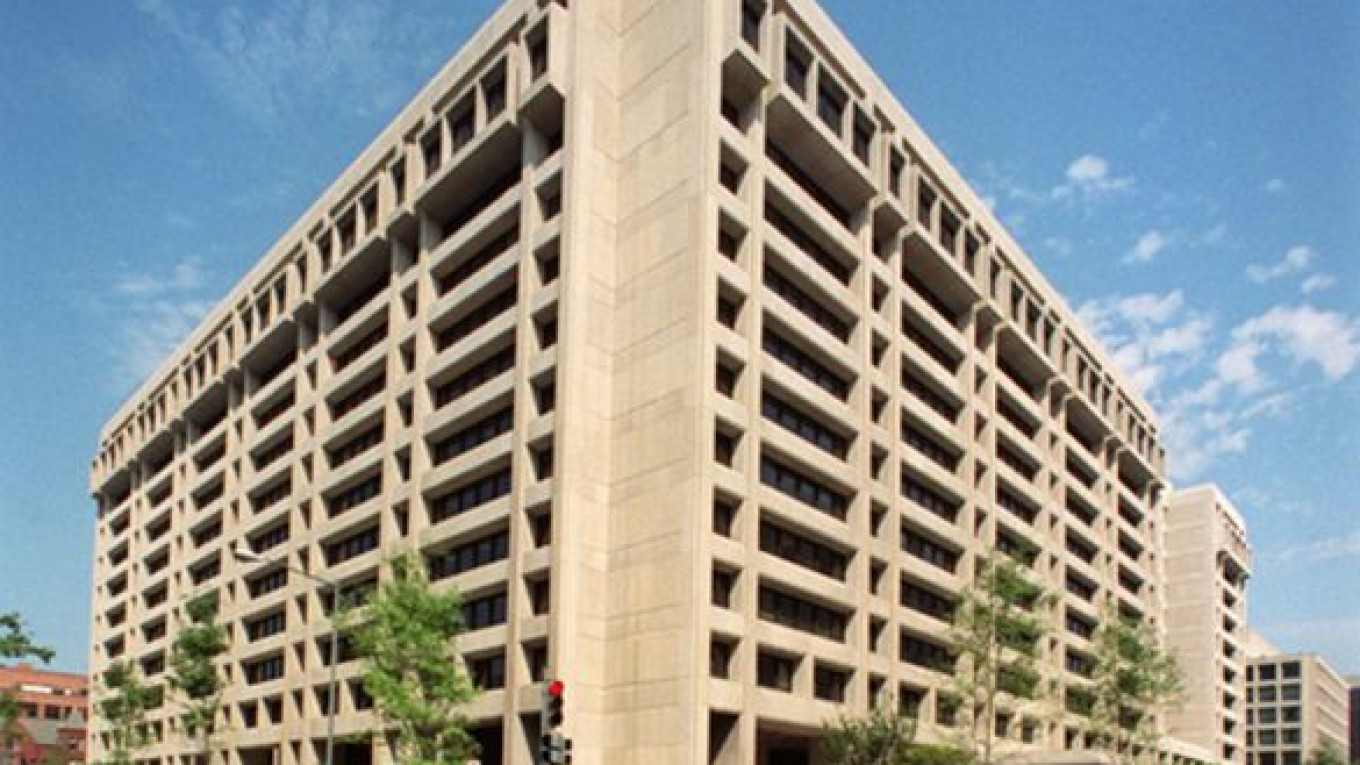WASHINGTON — Russia will consider contributing more than the $10 billion it has already promised to bolster the International Monetary Fund's crisis-fighting war chest, with the final figure to be coordinated with other BRICS countries, Finance Minister Anton Siluanov said Saturday.
"Ten billion dollars as [Russia's] minimum contribution has already been declared, the issue now is of changing it, increasing the sum, taking into consideration the IMF's need for additional resources," Siluanov told journalists on the sidelines of the International Monetary Fund/World Bank spring meeting in Washington.
"We will coordinate with our BRICS colleagues and will jointly decide on our possibilities."
Leading world economies on Friday pledged $430 billion in new funding for the IMF, more than doubling its lending power in a bid to protect the global economy from the euro-zone debt crisis.
Siluanov said $362 billion of the sum had been already committed.
"There's about $70 billion left," Siluanov said.
He said the so-called BRICS countries, which consist of Brazil, Russia, India, China and South Africa, would have figures ready by the June summit of the Group of Twenty advanced and emerging economies that will take place in Los Cabos, Mexico.
China could contribute $60 billion, matching Japan's pledge, although Beijing had not finalized the number. Saudi Arabia would chip in a little less than China, while Brazil was likely to contribute between $10 billion and $20 billion, a diplomat said.
The IMF traditionally has provided aid to struggling emerging market nations, but the euro-zone debt crisis has made big industrial economies a new focus. Emerging economies, which have been pressing for a greater say at the IMF, joined in pledging additional funds.
A central issue for winning support from the emerging markets has been the G-20's assurance that their voting power in the IMF, known as quotas, will be increased, giving the nations greater clout at the Fund.
The G-20 communique issued Friday reaffirmed that members would redistribute IMF power by the October meeting.
Russia downplayed the issue of quota reform as a precondition for the country's contribution to the IMF, but said the new quota distribution formula should be clear and understandable.
"We proposed that the emphasis in the calculation of quotas is based on two main indicators, the size of gross domestic product of each country and the volume of their gold and foreign exchange reserves," Siluanov said.
If those conditions were accepted, Russia's say at the IMF would increase considerably, as the country holds the world's third-largest amount of forex reserves, standing at $516.7 billion.
Siluanov said some BRICS countries spoke only of the need to increase the share of GDP in the quota formula.
"Several countries spoke of the need to continue dialogue on this issue," he said. "Some countries that already have quotas are not interested in refining them and, naturally, prefer to keep the existing formulas, without making changes."
A Message from The Moscow Times:
Dear readers,
We are facing unprecedented challenges. Russia's Prosecutor General's Office has designated The Moscow Times as an "undesirable" organization, criminalizing our work and putting our staff at risk of prosecution. This follows our earlier unjust labeling as a "foreign agent."
These actions are direct attempts to silence independent journalism in Russia. The authorities claim our work "discredits the decisions of the Russian leadership." We see things differently: we strive to provide accurate, unbiased reporting on Russia.
We, the journalists of The Moscow Times, refuse to be silenced. But to continue our work, we need your help.
Your support, no matter how small, makes a world of difference. If you can, please support us monthly starting from just $2. It's quick to set up, and every contribution makes a significant impact.
By supporting The Moscow Times, you're defending open, independent journalism in the face of repression. Thank you for standing with us.
Remind me later.






